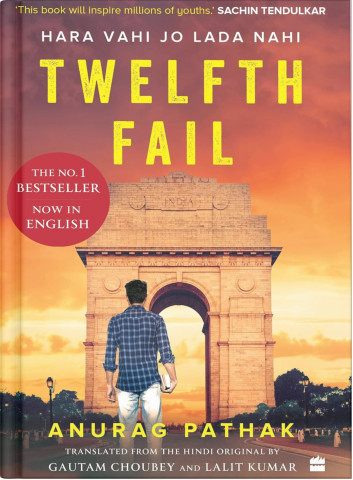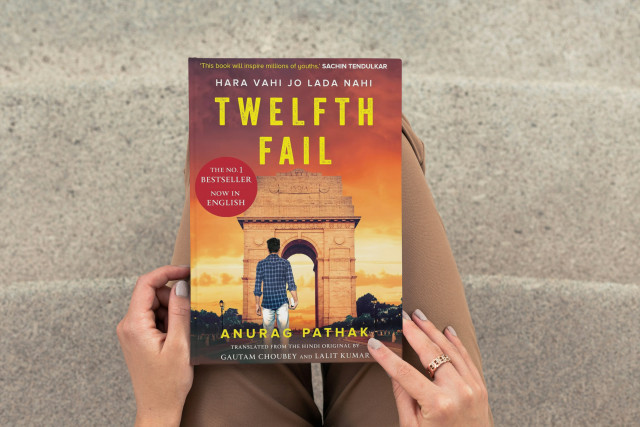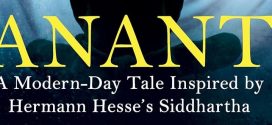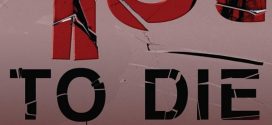When you are determined to achieve something and work relentlessly in the right direction with all your might and talent, it is not impossible to achieve your goal.
We often talk about biographies of the successful people. We consider them as a right source of inspiration. As they are based on the real people and real life incidents, it gives you that extra confidence that success (whatever it means for you) is achievable. Also, you get a chance to analyze the journey of many years through a few hundred pages and you require a few hours or days for that. So, the experiences of lifetime can be there for you to analyze and learn from in a few-hours! Isn’t it amazing?! Well, this way, you can learn from many lives in your single life, and get a chance to implement the summarized knowledge in your journey.
The stories of “rags to riches” are fantastic source of inspiration in the same regards.
When a person from a humble background makes a mark, it ignites hope in lakhs or crores of people. Be it a sportsperson, a movie star, an author, an artist, a government servant, or a political leader.
| Book Title | : | Twelfth Fail Hara Vahi Jo Lada Nahi |
| Author | : | Anurag Pathak |
| Translated By | : | Gautam Choubey, Lalit Kumar |
| Published by | : | HarperCollins December 27 2021 |
| # of Pages | : | 224 (Paperback) 239; 720KB (Kindle EBook) |
| Purchase Link(s) | : |
Today we are going to talk about one such inspirational story. The story of Mr. Manoj Kumar Sharma – an IPS officer from India.
These days, his name is not unknown, in India, especially. After Anurag Pathak’s book – Twelfth Fail – got a commercial and critical success, it was also adopted in a nice movie with the same name. And, that made Manoj Kumar Sharma – a household name. The civil services aspirants got a new role model in him. Yes, we are going to talk about the book 12th Fail (in book, it is mentioned as – Twelfth Fail: Hara Vahi Jo Lada Nahi) today.
This Is Here In For You
Book Cover:
The cover page of a book (or for that matter any media), plays a very important role in influencing a remarkable number of book read and/or purchase decisions. For majority of casual browsers when a book is able to catch his/her attention when looking at a large display, the chances are there that it would be picked for further elaboration and eventually bought/read. Of course, exceptions are the readers who already got the book recommendation from trusted sources and/or have a basic idea about the book and are willing to buy/read the same.

Twelfth Fail: Hara Vahi Jo Lada Nahi By Anurag Pathak | Book Cover
As you can see the cover page of this book is quite interesting.
Actually, it would be a challenge for the designer to come up with interesting cover, based on the title of the book.
The story, however, is a success story and the tagline Hara Vahi Jo Lada Nahi is quite contrary to the primary title, giving an ample amount of options to the designer to go ahead. As the protagonist and his “to-be-better-half” are UPSC aspirants, the designer kept in mind a monument that represent all the elements well.
Overall, not extra-ordinarily attractive, but moderately good cover page.
Storyline:
Let us take a bird’s eye view of the storyline.
In a small village of a northern state of India (that is Bharat), a boy was living a humble life with family. His father was doing a government job, but, was periodically at the loggerheads with his superiors and the authorities. So, there are months, when he was not doing anything (read, not contributing to the family income). His mother was a hard-working woman and she miraculously get the ends meet, almost always.
The boy decided to support his family, and when he found that running a temp between two destinations, picking passengers from all the connecting villages on the way and drop them to their destination can be a fruitful business. As, the government public transport buses seldom fulfil the need of the people living in-and-around that area.
Somehow the money was managed and the business was started.
But, they caught in a soup boiled by someone else.
A while ago an incident between another tempo owner and the boy’s friend happened, Its bitter fruits are delivered to them and the boy’s dream shattered again.
His love for cricket helped him. During one such event, he got a chance to do commentary. It caught the attention of the organizers and the chief guest.
The chief guest met him again in a different scenario. Seeing his powers, the boy has decided to study hard and be like “him”. Probably, that is the only way to get out of the misery and have a satisfying life.
Somehow he manages to go to a city for further studies.
The things are challenging at multiple ends.
He studied in Hindi, so English is the major problem for him.
Money is the other problem, he was constantly having. The situation was so dire that he may need to sleep hungry at times.
How he walks on his journey of life and makes his own reputed place by obtaining power to do good for the masses, is the rest of the story.
While exploring it you will meet with Manoj Kumar Sharma, Shraddha, Vikas Divyakirti, Pandit Kalicharan (Vishnu’s father), SDM Dushyant Singh, Narendra Singh, and many other people.
Views And Reviews:
Writing a biography is a challenging task.
You cannot go over the top while narrating the incidents and you cannot underplay also. You have to be careful to not to do injustice to the other characters.
When all the major characters are not only young and active, but living a life in public service area, the situation becomes even more challenging.
You need to stick to the truth and have to be very careful in keeping the balance. And, at the same, you need to make it inspirational by elaborating the emotions, mental-battles, life-struggles, achievements, failures and all the other aspects of the story.
It seems, the author has done a remarkable job here.
We often ignore the preface, foreword, trivia, bibliography, glossary and other similar sections. For a majority of readers, their main focus is on the main story. It like when paying attention to main course when going for meals 🙂
Well, it is obvious. But, when we ignore these segments, we sometimes miss some aspect(s) of the main story too. Usually preface, forewords and other similar segments provides you context of the story. Also, it lets you be familiar with the author’s vision for the story and much more.
In the foreword segment of this book, we found these interesting lines.
Could you please lend me fifty- thousand rupees for a few months? I will return ten- thousand every month,’ he said. I was left stunned again. I had never heard of an IPS officer, married to a lady who works for the IRS, struggle to arrange a sum so small.
Seems, unbelievable to you as well, right? The famous coach of UPSC aspirants and owner of a well reputed institution in this segment – Vikas Divyakirti – shares a real incident involving both Manoj and Shraddha, the protagonists of the story.
Without mentioning it explicitly it shows us the qualities of them both, including honesty, modesty, non-corrupt nature, down-to-earth behavior, and not misusing their power.
Well, for most of the aspirants, usually this is the vision and behavior when they aspire to join public services. But, it is tough to stick to your rules, morals, ethics and values, when you get the power and position both. It seems that the humble growing-up years and the values they believe in, never left this couple.

Twelfth Fail: Hara Vahi Jo Lada Nahi By Anurag Pathak | Book Cover
The book also refers to the life, incidents and messages of Swami Vivekananda. Inclusion of such stuff makes the book even more valuable.
The author introduces us the places of action quite effectively. This is how the reader get details about the village from where these story starts.
Bilgram, a village near Joura tehsil, thirty kilometres from the district headquarters of Morena.
No fancy words, no detailed descriptions of surrounding, simple and to-the-point. Such descriptions make the reading experience smooth and slick.
The way the dispute happens on the ground and the strategies used by people there, is presented as:
His many years on the job had taught him that running was the best strategy when trapped alone in a hostile village.
Later, one should try to drag the conflict into one’s own territory.
When the situations are tough, the dark humor finds its place. The author includes some satirical lines in the book, making it a light read.
The mother’s complaint forced the father into a yogic silence.
The auto was still parked outside the police station, neglected and awaiting the court’s verdict.
The positive attitude is a must to have quality when you want to better the situations. The author has shown it in the protagonist quite effectively.
Manoj was convinced that success would come to him only if he dared to walk down the difficult path and not the easy one.
However, instead of cursing fate, Manoj was determined to weather the storm by giving tuitions and earning enough to rent a room at Peelikothi.
The author is very clear about the qualities one must have. He says:
Talent did not bloom by itself, but flowered through untiring labour, limitless patience, total dedication, immense sacrifices and a burning desire for success.
So, rather than blaming on circumstance or financial/social status, one has to do his/her work to be what he/she wants to be.
And, the author further motivates the reader (in the book, book these lines are written specifically for aspirants of civil services exam, but they are applicable in all aspects of life).
‘Trouble arises when we are lured by promises of comfort, and surrender our ideals and let our soul darken.’
After all, those who clear the exam do not tumble down from heaven.
The book clearly says:
We must always have high goals; nothing is impossible if a man is determined.
And blaming anything/anyone else is nothing but cowardice. The author says:
We must always aim high; we might miss the mark, but the flight will strengthen our wings, admitting defeat without struggle is cowardice.
… that there is no greater a sin than calling oneself weak.
Of course, one must need to put in his/her efforts.
… one must never be sad. Sources of joy lie scattered all around us. One has only to reach out and gather them.
The door to knowledge can only be reached through the corridors of selfless service—
Love is amongst the most precious gifts we are blessed with. The book explores Manoj and Shraddha’s love story in parallel. Some of the beautiful lines about love in the book includes the following:
‘Love is the inner force that inspires me to study,’
Pandey, he didn’t hold his beloved responsible for his failure.
Rather, he gave her the credit for bolstering his confidence.‘Shraddha, who should I listen to? You or your eyes? You say something and your eyes say something else.’
The author is good at presenting conflicting emotions:
A young man, who had covered a distance of more than a thousand kilometres in the pursuit of love, was asked to produce a report card of his studies.
How short- lived human emotions are; a moment of absolute trust is followed by moments of deep distrust.
Here are some more interesting lines from the book:
I felt drenched in a profound sense of purity.
Walking under a scorching afternoon sun, he was drenched to the bones with sweat.
… he hadn’t met Mona. The two never met again— neither in a city as big as Gwalior, nor in a world so small.
Tyagiji was right— moving door to door for donation will not only puncture our bloated ego but will also make us realize how very important the society is, and how very insignificant individuals are.
When he spotted her from a distance in a bright- red salwar- kameez printed with black flowers, his anxieties were put to rest. She appeared like a shower of rain in a parched desert, or welcome shade for a wayfarer in the scorching heat.
If I am allowed to quote only one block of text from the book, possibly I would settle for the following one. We all want the same from any officer, and we all have to do the same with others.
…the issue is not whether these people are right or wrong. What matters is how I, as an individual, respond to someone’s misery.
So, by now, you must have got an idea about the quality of the book and the kind of writing in it. Of course, when a few yars of life are explored in a few pages, a lot was skipped. And, when we talk about a few hundred pages in a few words, we are also skipping a large part. Some of them are skipped intentionally to avoid the things which otherwise effect your actual reading experience (read: include spoilers).
Summary:
The book is a short, crisp and inspirational read. The author has made the characters humans. They have their highs and lows, strengths and vulnerabilities. And, that is how we all are. The author is not trying to make the protagonist a superhuman. And, yet is able to tell what he wanted. I liked reading this book.
ThinkerViews Rating:
Around 8 stars out of 10.
Quick Purchase Links:
- Buy - Twelfth Fail by Anurag Pathak - Paperback - Amazon IN
- Buy - Twelfth Fail by Anurag Pathak - Kindle EBook - Amazon IN
- Buy - Twelfth Fail by Anurag Pathak - Paperback - Amazon US
- Buy - Twelfth Fail by Anurag Pathak - Kindle EBook - Amazon US
Over To You:
If you already have read the book do share your remarks and thoughts via comments below. Does this review help you in making your decision to buy or read the book? Do not forget to share this article with your friends over various social networks. Please follow/subscribe us on various Social networks like Twitter, Facebook, YouTube, Spotify, Amazon Prime Music, Audible, and others. And yes, you may like to subscribe to our RSS feeds to get latest updates for the site to land right in your mail box.
 ThinkerViews – Views And Reviews Personal views and reviews for books, magazines, tv serials, movies, websites, technical stuff and more.
ThinkerViews – Views And Reviews Personal views and reviews for books, magazines, tv serials, movies, websites, technical stuff and more.



